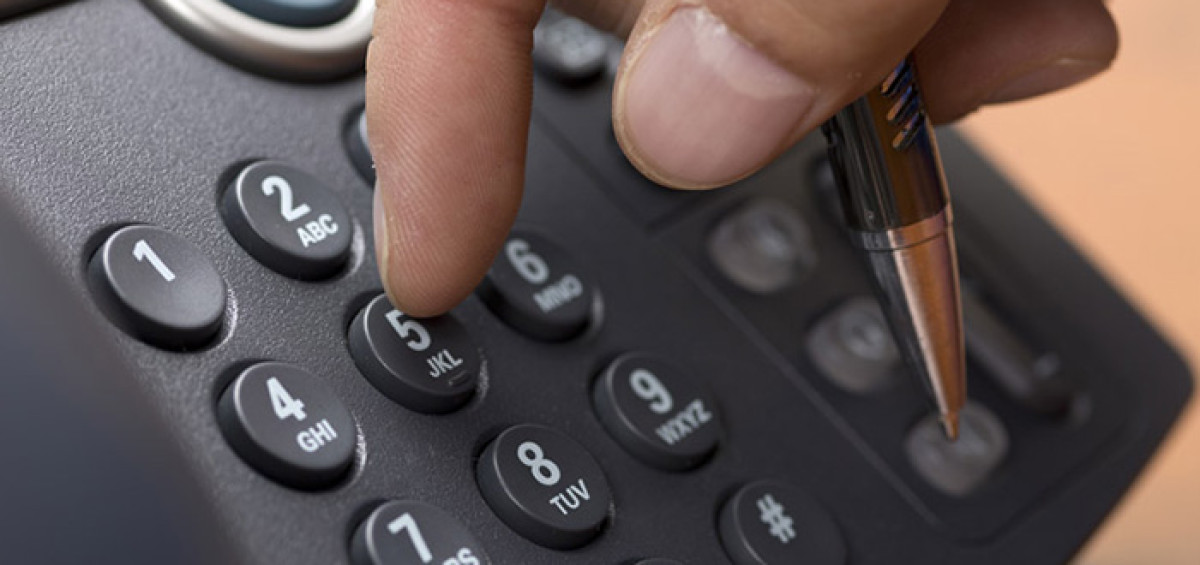TIPS FOR ACING A PHONE INTERVIEW
A phone interview can be distracting and full of complications if you aren’t careful about your surroundings and have spotty service. Limit these easy to solve issues and other problems by following these great tips!
Before the interview:
- Research the company. Look up current news, stock symbol; make sure you understand what they do and that you can explain it to them. It’s acceptable to walk into an interview with your notes.
- Research the interviewer. Run a Google, Yahoo and LinkedIn search on the person you will be interviewing with. You can learn valuable information about them that may help you with the interview. You may have common ground or know some of the same people.
During the interview:
- Use a land line. If a cell phone is the only option, make sure you are in a place free from distraction, that your phone is fully charged, and you are in an area with excellent reception. DO NOT use speaker phone!
- Remain seated. Do not drive around or perform other tasks during the interview.
- Take Notes. Have at least 2 pens or pencils and a clean note pad to write notes. This will help you come back to any questions that come up during the interview that may need to be readdressed.
- Ask Questions. Have questions lined up to ask the manager at the start of the interview. You want to gain an understanding of what their expectations are, the projects they are working on right now, challenges they have or anticipate encountering. Once you have this knowledge you can answer their questions using examples of your work history making your answers relevant to their current projects and needs.
Examples of questions will be:
- What are your expectations of someone in this role?
- What projects are you working on right now?
- What projects do you have coming up?
- What challenges have you encountered or do you anticipate?
- Would you give me a technology overview for this position?
- How does this role, integrate within the team and within the company?
- What opportunities for advancement are there?
- Actively listen and DO NOT anticipate questions. As the interviewer begins to ask questions, be sure to listen to the entire question and not to anticipate what you THINK the question will be.
- Clarify by repeating the question in your own words. If you do not understand the question or if you did not hear it clearly, repeat the question back to the interviewer in your own words….i.e. “I believe what you are asking is- How would I approach a situation where……?” This technique will both clarify the question and provide a little more time for you to form the answer.
- Speak clearly and enunciate. When speaking by phone, many of the intricacies of communication are lost. Facial expressions, hand gestures, and much of your voice intonation are lost.
- Use examples when answering questions. Be sure to answer the question with an example and NOT simply a “Yes”. Elaborate on why the answer is “Yes”.
- Be positive. If the answer to the question is “No”, turn the answer into a positive, if possible. i.e. “I have not used that particular tool, however I have used X, which I believe will perform the same function and I used X to perform…… 2 years ago on a PeopleSoft implementation.” Or “I have not used the specific technology, but previously on a project when I worked for Shell Oil I was also faced with a new technology, X, and I was able to do the research as well as read the manual and quickly picked up the technology as well as keeping my deliverables on time.”
- Do not ramble. If you feel as though you have been speaking for more than 20-30 seconds without input from the interviewer, take a moment to reconnect with the interviewer. i.e.
- Be conscious of long pauses by the interviewer after your answer. Many times a pause of more than a 2-3 beat count indicates that the interviewer either did not like or did not understand your answer. This is the time for a follow up….i.e. “Does that make sense?” “Am I going in the right direction?” “Would you like more detail?” “Is this what you are looking for?”
- State your interest. When the interview feels like it is starting to wind down, be sure to let the interviewer know you are interested in the position. A lot of people will interview and fail to tell the interviewer they want the job. People want to know you are interested in the company and the job. Give two personal reasons why the job is appealing. For example: You really enjoy the technology base they work on and want to continue your knowledge base in that direction. You have worked on similar projects and found them to be challenging. The opportunities for advancement with this position are very attractive to you.
- Restate your value. Once you’ve stated your interest, follow up with reasons of why they need to move you forward with the next steps.
For example:
- You are heavily entrenched in the same technology they are working on.
- You can hit the ground running and bring immediate value to the group.
- You have been exposed to some of the challenges they are facing right now and you know how to work through those effectively.
- Ask them if you have answered all their questions or if there is something you may need to go into more detail on.
- Ask about next steps. Based upon our conversation today, what are our next steps moving forward? If they say they need to get you in for a follow up interview be sure to have some times lined up so you can go ahead and get the next interview on the calendar.
- Thank the interviewer for his/her time and that you look forward to speaking with them further.
- Don’ts for the interview.
- Don’t discuss money.
- Don’t ask about vacation time
- Don’t ask about how much paid time off you get.
- Don’t ask about benefits
- Don’t talk about health issues
Note: The interview is about what value you bring to the organization. These discussions are valid and may be things you will need to know before accepting the position, however they are best left for the offer stage. You want the interviewer to understand you are interested in the job and bringing value to the company. If you approach the interview focused on vacation, money, benefits or time off, the interviewer may feel you are really more interested in what the company can do for you and not what you can do for the company.
- Call your recruiter after the interview and let them know how things went. Share the positive and negative so we can get back to the manager and promptly establish next steps or handle damage control on your behalf. Sometimes you may walk out of an interview wishing you had said something different or approached a technology answer in a different manner. It is easier to address these things quickly after an interview, if needed, than to wait. Time is critical.




